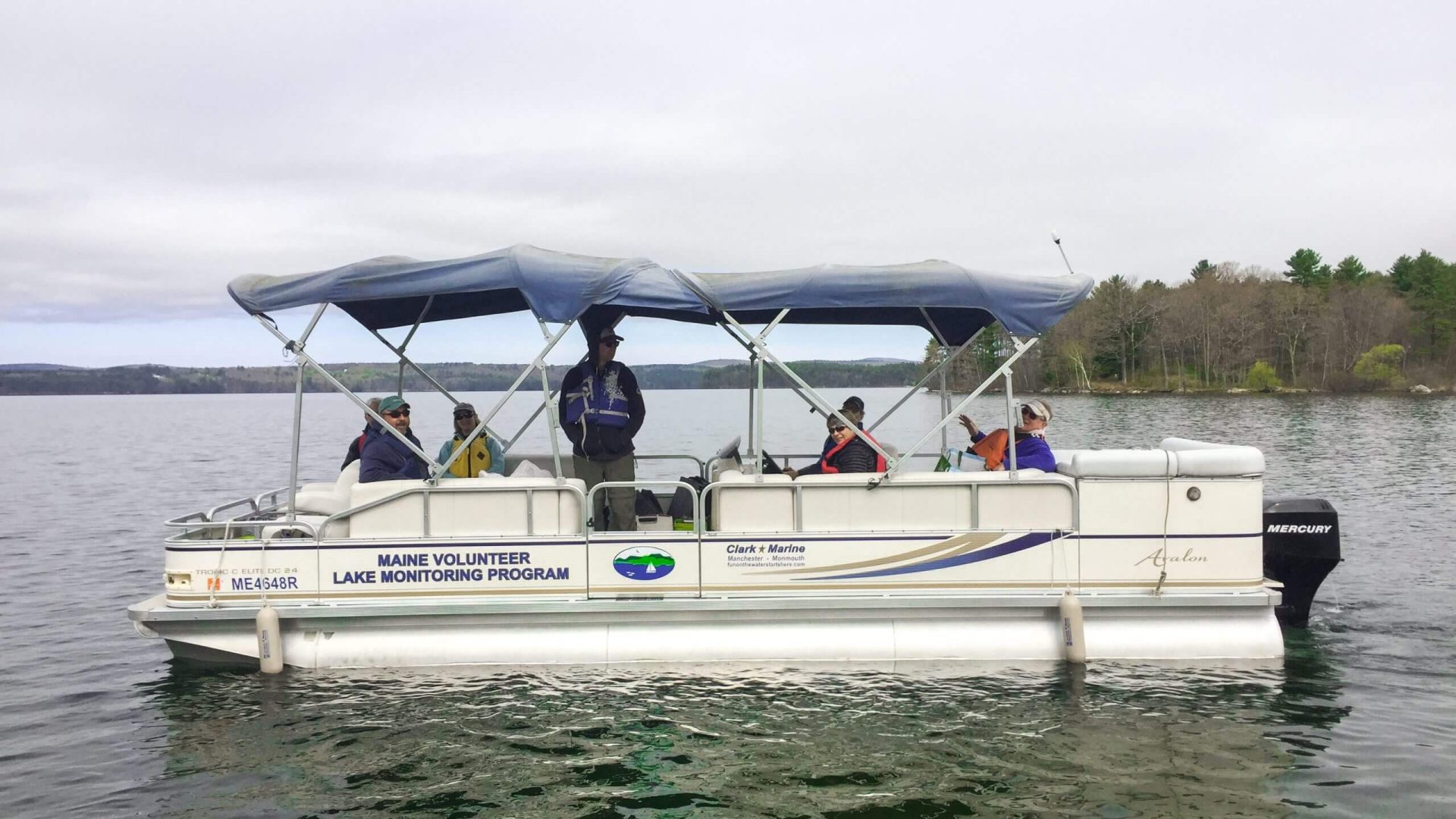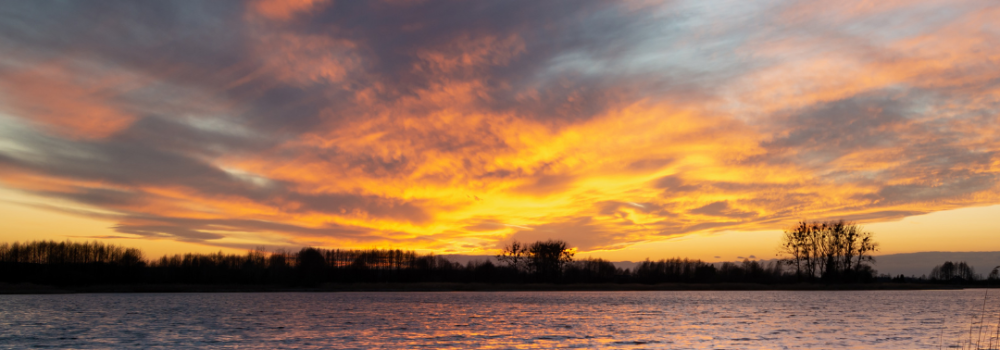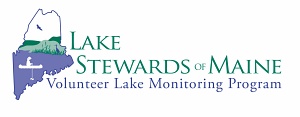Water Quality Certification Process

Quick Links
Understanding the New Maine DEP Lake Scorecard on Lakes of Maine
LSM Programs & Tools
Latest News from LSM
Forms & Data Sheets
What Volunteers Do
LSM volunteers are trained and certified to collect scientific water quality data of the highest integrity. Each monitor completes an initial training workshop and is recertified regularly to ensure accuracy and consistency.
All monitors use a Secchi disk and view scope to measure water clarity. Some also use dissolved oxygen (DO) meters and collect samples to measure for phosphorus, chlorophyll-α, and other parameters.
Volunteers collect readings approximately every two weeks from May through October. Completed data are submitted by September 15th, reviewed by LSM staff, and compiled for the Maine DEP, which uses the data in lake condition determination and funding allocation.
Reviewed data appear on the Lakes of Maine website.
Some data is entered directly by volunteers into the Real-Time Data Portal. Please be aware this data is unreviewed.
Program Expectations
To maintain consistent, high-quality data, LSM’s Water Quality Monitoring Program has the following expectations and criteria:
1. Volunteer Availability
The number of monitors per lake depends on lake size and monitoring needs. If a lake is already covered, new volunteers may collect data as alternates, partners, or additional volunteers; however, LSM does not receive sufficient funding to provide additional sampling equipment in these cases. Larger, multi-basin lakes often benefit from multiple monitors and LSM will provide sampling equipment in such cases.
2. Initial Training
Volunteers complete online instructional videos and quizzes, followed by an in-person training workshop offered from spring through summer each year.
3. Equipment
Each lake is provided with at least one Secchi disk with calibrated tape and a viewing scope. LSM may be able to provide additional equipment depending on our resources. Help support our work.
Volunteers are responsible for maintaining this equipment and returning it to LSM (or their successor) when they leave the program.
LSM does not provide DO meters to volunteers, but may have meters and sampling devices for rental, as availability allows.
4. Monitoring Schedule
Secchi readings: at least twice monthly (every two weeks) from May–October.
DO readings: at least once monthly.
We ask that volunteers make a multi-year commitment to their lake as the cost of training is significant.
5. Field Requirements
Volunteers do not need to live on a lake to monitor, but they do need access to a watercraft and a reliable (strong) anchor with enough rope to anchor at the deep hole on their lake. Maps of your lake with the deep hole can be found on our Lakes of Maine website.
6. Submitting Data
Recording data accurately is one of the most important aspects of the program. Please be sure to fill out forms carefully and completely. Please submit completed data forms by September 15. Additional data should be submitted when you have completed your sampling season.
7. Recertification
Volunteers need to recertify regularly. This depends on the type of monitoring they are preforming. Please see below for more information.
Water Quality Monitoring Certification Requirements (revised 2025)
All volunteers must maintain active certification according to the following standards:
All volunteers must pass the Secchi Simulator online quiz every year.
First two years: Volunteers must attend an in-person training each year to confirm correct data collection techniques.
Volunteers using specialized sampling devices (e.g., Van Dorn, Kemmerer, epilimnetic core tube) must recertify in-person annually.
Volunteers collecting dissolved oxygen (DO) data:
Must have their DO meters inspected annually at MeterFest in the spring.
If using a polarographic DO meter, must recertify in-person every year.
If using an optical DO meter, must recertify in-person every other year.
Volunteers collecting only Secchi transparency and surface total phosphorus samples:
Must recertify in-person once every four years.
Water Quality Certification Workshops
2025 Training Schedule and Map
The 2025 training season has come to a close. Please check back with us in 2026!
To register…
- As a completely new water quality volunteer monitor, please contact us using the form on this page. We will contact you by email with information about the trainings. You will need to signup for and then attend one of the workshop sessions that is labeled as “New and Recert”.
- As a current Secchi monitor who would like to become certified in Dissolved Oxygen monitoring, please contact the LSM office at stewards@lakestewardsme.org, or call to speak with Jonnie at 207-783-7733. You will need to attend one of the sessions that is labeled as “New and Recert”.
- As a current monitor who needs to participate in recertification, please contact Jonnie by email with the workshop you would like to attend.
2025 Water Quality Training Workshops
Interested in becoming a new water quality monitor or renewing your certification? Below is an overview of the process. At the above, you’ll find a map and listing of scheduled trainings.
Thanks to the support of our local boat hosts, who generously volunteer their time and fuel, we can offer regional trainings across the state. The local boat host program is essential to ensuring every volunteer has the opportunity to become certified or recertified.
For New Water Quality Monitors
If you are new to the LSM water quality program, please contact us via this form. We offer multiple workshop sessions, some likely near your area.
Trainings are divided into three levels based on equipment, recertification frequency, and lake system theory:
- Secchi Transparency Monitoring
- Secchi + Dissolved Oxygen (DO) & Temperature Monitoring
- Advanced Monitoring (using e.g., Kemmerers, in-situ data loggers, filter rigs)
To become a DO monitor, you must own or have access to a certified DO meter. LSM provides annual certification information through our MeterFest event starting each March. DO meters range from $600 to $6,000, but LSM also offers a rental program. Interested? Contact us at: stewards@lakestewardsme.org.
If a monitor already works on your lake, we recommend joining them to see monitoring firsthand.
For Existing Water Quality Monitors
Thank you for continuing to contribute to long-term water quality data. Consistent data collection is vital to understanding lake trends over time and thereby protecting our lakes.
In February, we’ll email details about the upcoming summer trainings, and our spring mailing of data forms will include 2025 training information. To sign up for an in-person recertification, please contact Jonnie by email.
Please submit any completed data forms by September 15. Additional data should be submitted when you have completed your sampling season.
Schedule updated 2024-11-12
Yellow rows indicate changes to the schedule
| Waterbody | County | MIDAS | New / Recert | Training Type | Workshop Date | Workshop Time |
|---|---|---|---|---|---|---|
| Currently no scheduled workshops | N/A | N/A | N/A | N/A | N/A | N/A |
LSM Community Water Quality Technical Discussions

- Observations of recent conditions on/in a lake
- Problems or questions regarding volunteer monitoring equipment
- Any issues with quality assurance
- Discussion/interpretation of recently collected (or historical) lake data
- Climate change
- Changing technologies and monitoring methods
- Any unusual phenomena recently observed
- Changes in protocol due to the pandemic and other broader social issues as it relates to lake monitoring and science
Water Quality Check-In Sessions Calendar
Schedule updated 2026-01-27
| Date | Time | Registration Link |
|---|---|---|
| Feb. 16, 2026 | 11:00 AM | Register |
| Mar. 20, 2026 | 11:00 AM | Register |
| Apr. 6, 2026 | 11:00 AM | Register |
| May 6, 2026 | 3:00 PM | Register |
| May 27, 2026 | 11:00 AM | Register |
| June 8, 2026 | 10:00 AM | Register |
| June 19, 2026 | 2:00 PM | Register |
| July 16, 2026 | 11:00 AM | Register |
| July 31, 2026 | 11:00 AM | Register |
| Aug. 12, 2026 | 12:00 PM | Register |
| Aug. 26, 2026 | 2:00 PM | Register |
| Sept. 8, 2026 | 12:00 PM | Register |
| Sept. 29, 2026 | 1:00 PM | Register |
| Oct. 21, 2026 | 1:00 PM | Register |
| Nov. 18, 2026 | 2:00 PM | Register |
| Dec. 8, 2026 | 2:00 PM | Register |
You are welcome to attend as many of the sessions as you like throughout the year. The sessions are generally scheduled to take place from 12:00 PM – 1:00 PM. Moderators will have the option to continue individual sessions beyond this point or conclude earlier depending on participant interest. In addition, we will make the decision to offer additional sessions if there is a specific group interested in meeting or an additional time that will suit a person’s schedule. If you are interested in this, please send an email to stewards@lakestewardsME.org. We hope to see you there!
